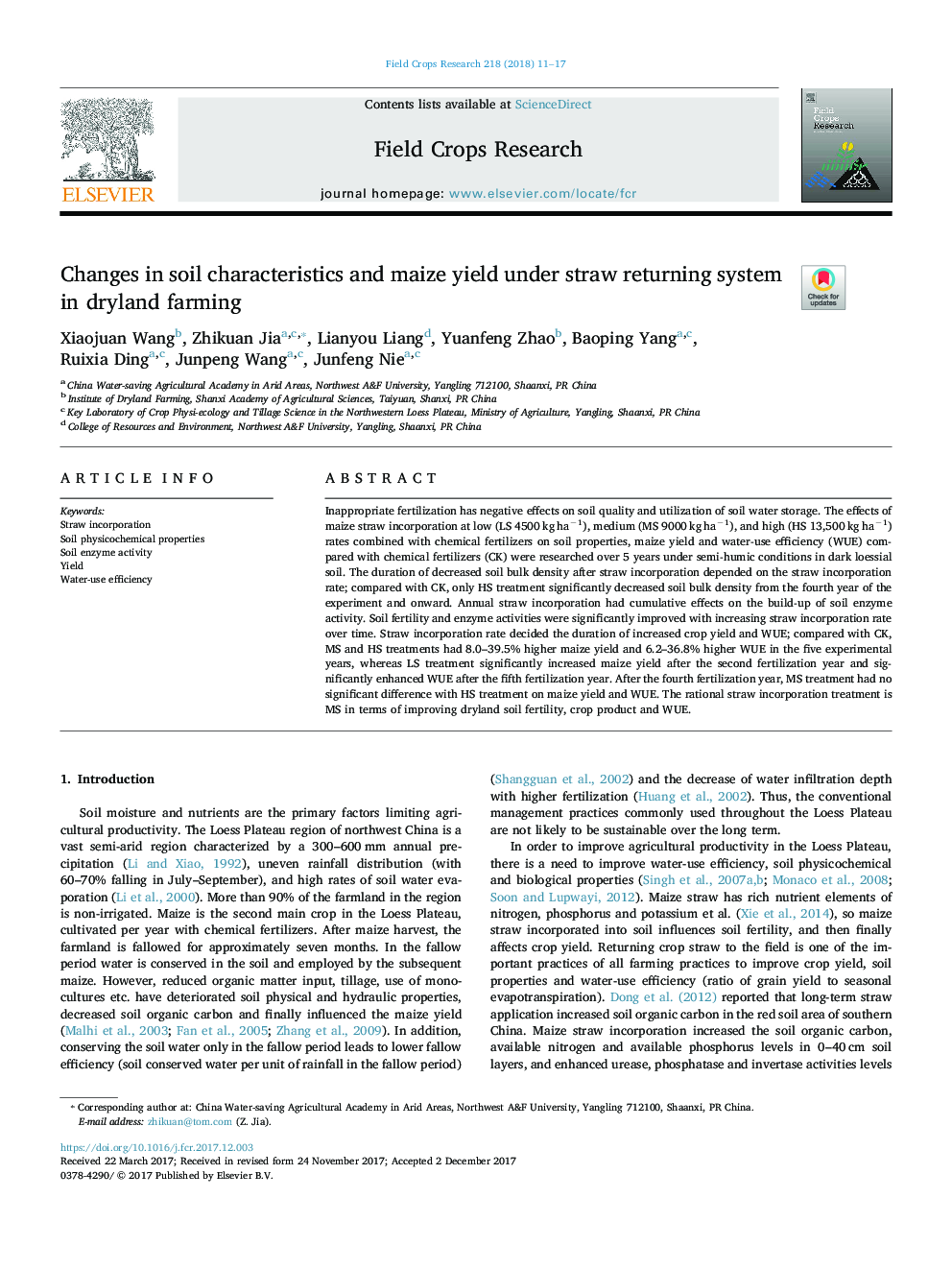| Article ID | Journal | Published Year | Pages | File Type |
|---|---|---|---|---|
| 8879344 | Field Crops Research | 2018 | 7 Pages |
Abstract
Inappropriate fertilization has negative effects on soil quality and utilization of soil water storage. The effects of maize straw incorporation at low (LS 4500â¯kgâ¯haâ1), medium (MS 9000â¯kgâ¯haâ1), and high (HS 13,500â¯kgâ¯haâ1) rates combined with chemical fertilizers on soil properties, maize yield and water-use efficiency (WUE) compared with chemical fertilizers (CK) were researched over 5 years under semi-humic conditions in dark loessial soil. The duration of decreased soil bulk density after straw incorporation depended on the straw incorporation rate; compared with CK, only HS treatment significantly decreased soil bulk density from the fourth year of the experiment and onward. Annual straw incorporation had cumulative effects on the build-up of soil enzyme activity. Soil fertility and enzyme activities were significantly improved with increasing straw incorporation rate over time. Straw incorporation rate decided the duration of increased crop yield and WUE; compared with CK, MS and HS treatments had 8.0-39.5% higher maize yield and 6.2-36.8% higher WUE in the five experimental years, whereas LS treatment significantly increased maize yield after the second fertilization year and significantly enhanced WUE after the fifth fertilization year. After the fourth fertilization year, MS treatment had no significant difference with HS treatment on maize yield and WUE. The rational straw incorporation treatment is MS in terms of improving dryland soil fertility, crop product and WUE.
Keywords
Related Topics
Life Sciences
Agricultural and Biological Sciences
Agronomy and Crop Science
Authors
Xiaojuan Wang, Zhikuan Jia, Lianyou Liang, Yuanfeng Zhao, Baoping Yang, Ruixia Ding, Junpeng Wang, Junfeng Nie,
